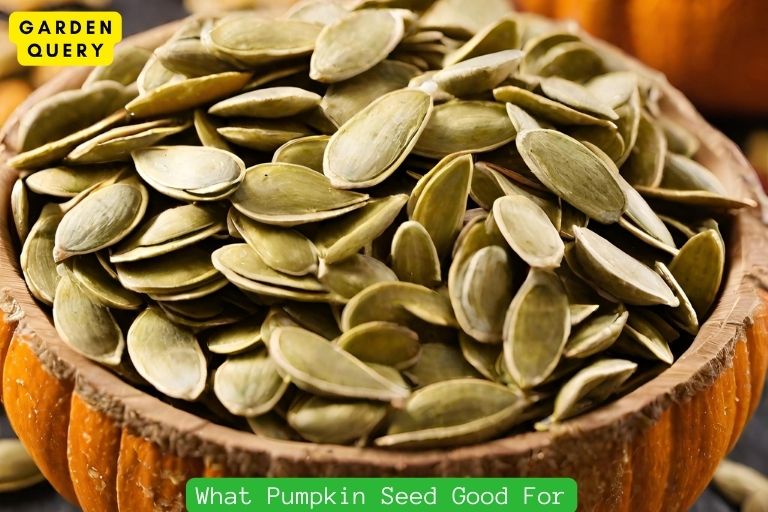Can Pumpkin For Dogs?
Yes, pumpkin for dogs is a nutritious and beneficial addition to their diet, offering a range of health advantages.
Pumpkin is a canine-friendly superfood that brings various health benefits to dogs. Its high fiber content aids in promoting healthy digestion, alleviating both diarrhea and constipation. The soluble fiber in pumpkin helps regulate bowel movements, making it a valuable remedy for gastrointestinal irregularities in dogs.
Additionally, pumpkin is rich in essential nutrients like vitamins A and C, as well as beta-carotene, contributing to overall well-being. Introducing pumpkin to a dog’s diet should be gradual, and consulting with a veterinarian can ensure appropriate serving sizes for individual dogs.
Key Takeaway
Benefits of Feeding Pumpkin to Dogs
Benefits of Pumpkin for Dogs’ Digestive Health
Pumpkin can be a nutritious addition to your dog’s diet, especially when it comes to their digestive health. Here are some benefits that pumpkin provides for your furry friend:

Improves digestion: Pumpkin is rich in fiber, which can aid digestion and regulate bowel movements. It can help ease both constipation and diarrhea in dogs.
Relieves upset stomach: If your dog is experiencing an upset stomach, feeding them some plain, pureed pumpkin can help soothe their tummy. The fiber in pumpkin can absorb excess water and calm digestive issues.
Prevents anal gland problems: Many dogs suffer from anal gland problems, which can cause discomfort and even infection. Adding pumpkin to their diet can help regulate bowel movements and reduce the chance of issues with their anal glands.
Supports a healthy gut: Pumpkin is a natural source of prebiotics, which are essential for maintaining a healthy gut flora. A balanced gut flora is important for a strong immune system and proper digestion in dogs.
Benefits of Pumpkin for Dogs’ Weight Management
If your dog is struggling with weight management, pumpkin can be a beneficial addition to their diet. Here are some ways pumpkin can help with weight control:
Low in calories: Pumpkin is low in calories, making it a great alternative to high-calorie treats for dogs on a weight-loss regimen. It can also be added to their regular meals to increase the bulk without adding excessive calories.
High in fiber: The high fiber content in pumpkin can help dogs feel full while consuming fewer calories. This can prevent overeating and promote satiety, aiding in weight management efforts.
Promotes healthy weight loss: By replacing a portion of your dog’s regular food with pumpkin, you can reduce their caloric intake while still providing essential nutrients. This gradual approach to weight loss is healthier and more sustainable for your pet.
Provides essential nutrients: Pumpkin is not only low in calories but also packed with important nutrients. It contains vitamins A, C, and E, as well as potassium, which are vital for your dog’s overall health.
In conclusion, pumpkin can be a beneficial addition to your dog’s diet. It offers advantages for their digestive health, including improving digestion, relieving upset stomachs, preventing anal gland problems, and supporting a healthy gut. Additionally, pumpkin can aid in weight management by being low in calories, high in fiber, promoting healthy weight loss, and providing essential nutrients. However, it is important to introduce pumpkin to your dog’s diet gradually and in moderation. Always consult with your veterinarian before making any changes to your dog’s diet or if you have any concerns about their health.
How to Feed Pumpkin to Dogs
As a responsible dog owner, you always want to ensure that your furry friend stays healthy and happy. One way to achieve this is by incorporating pumpkin into their diet. Pumpkin is not only delicious but also packed with essential nutrients that can benefit your dog’s overall well-being. Here’s how you can safely introduce pumpkin to your dog’s diet.
Preparing Fresh Pumpkin for Dogs
If you have access to fresh pumpkin, it can be a great addition to your dog’s meals. Follow these simple steps to prepare fresh pumpkin for your furry friend:
Start by selecting a ripe pumpkin. Look for a pumpkin that is firm, without any bruises or blemishes.
Wash the pumpkin thoroughly to remove any dirt or pesticides.
Cut the pumpkin into small, bite-sized pieces, removing the skin and seeds.
Cook the pumpkin by either boiling or steaming it until it becomes soft and tender. Avoid adding any seasoning or spices, as they can be harmful to dogs.
Allow the cooked pumpkin to cool down before serving it to your dog. You can mix it with their regular meals or serve it as a standalone treat.
Using Canned Pumpkin for Dogs
If fresh pumpkin is not readily available or convenient for you, canned pumpkin can be a suitable alternative. Here’s how you can incorporate canned pumpkin into your dog’s diet:
- Make sure to choose canned pumpkin that is 100% pure, without any added sugar, spices, or fillers. You can find canned pumpkin at your local grocery store or pet supply store.
- Start by introducing a small amount of canned pumpkin into your dog’s diet. A teaspoon or two per day is a good starting point.
Gradually increase the amount of pumpkin over time, monitoring your dog’s digestion and overall well-being. It’s essential to introduce new foods slowly to prevent any digestive upset.
You can mix the canned pumpkin with your dog’s regular meals, use it as a topper for dry kibble, or even freeze it into tasty pumpkin popsicles.
Remember, pumpkin should be served as a supplement to your dog’s regular diet and not as a replacement for their primary food. It’s always a good idea to consult with your veterinarian before making any significant changes to your dog’s diet or introducing new foods.
In conclusion, incorporating pumpkin into your dog’s diet can provide numerous health benefits. Whether you choose fresh or canned pumpkin, it’s essential to prepare it properly and introduce it gradually. Pumpkin can help improve digestion, promote a healthy weight, and provide a natural source of vitamins and minerals for your furry friend. So go ahead and add some pumpkin goodness to your dog’s meals for a happy and healthy pup!
Pumpkin Recipes for Dogs
If you’re a pet owner, you know how important it is to provide your furry friend with nutritious and delicious meals. Pumpkin, packed with fiber and essential nutrients, can be a great addition to your dog’s diet. It not only tastes great to them but also provides numerous health benefits. So, why not try some pumpkin recipes that your dog will love?
Pumpkin and Peanut Butter Dog Treats
These homemade dog treats are not only simple to make but also irresistible to your pup. Here’s what you’ll need:
- 1 cup pureed pumpkin (unsweetened)
- ½ cup natural peanut butter
- 2 ½ cups whole wheat flour
Instructions:
Preheat your oven to 350°F (175°C) and line a baking sheet with parchment paper.
In a mixing bowl, combine the pureed pumpkin and peanut butter until well blended.
Gradually add the whole wheat flour to the mixture, mixing well after each addition, until a dough is formed.
On a lightly floured surface, roll out the dough to about ¼-inch thickness.
Cut out the dog treats using cookie cutters of your choice and place them on the prepared baking sheet.
Bake for 20-25 minutes or until the treats are golden brown and firm.
Once cooled, store the treats in an airtight container.
Your dog will absolutely adore these pumpkin and peanut butter treats. Plus, they are rich in fiber and help support their digestive health.
Pumpkin and Chicken Dog Meal
If you’re looking to incorporate pumpkin into your dog’s main meal, try this simple and nutritious recipe:
Ingredients:
- 1 cup cooked chicken (shredded or diced)
- ½ cup pureed pumpkin (unsweetened)
- ½ cup cooked brown rice
Instructions:
In a mixing bowl, combine the cooked chicken, pureed pumpkin, and cooked brown rice.
Mix well until all the ingredients are evenly distributed.
Serve in your dog’s dish and watch them enjoy a flavorful and wholesome meal.
This pumpkin and chicken dog meal is not only tasty but also provides your dog with protein, vitamins, and minerals. It can be a great option for dogs with sensitive stomachs or those in need of a gentle diet.
Remember, when introducing any new food into your dog’s diet, be sure to watch for any signs of allergies or digestive issues. Small portions and gradual transitions are key to ensuring their tummy stays happy and healthy.
Whether you’re making homemade treats or incorporating pumpkin into their meals, your dog will benefit from the added nutrients and delicious flavors. Just make sure to use pureed pumpkin without any added sugars or spices, as these can be harmful to dogs.
So, next time you’re preparing your own pumpkin recipes, why not set aside some for your furry companion? Your dog will thank you for the tasty and nutritious treat!
Precautions and Considerations
Precautions for Feeding Pumpkin to Dogs
When it comes to feeding pumpkin to dogs, there are a few precautions to keep in mind to ensure their safety and well-being:
Portions and Moderation: While pumpkin is generally safe for dogs, it should still be given in moderation. Too much pumpkin can lead to an upset stomach and diarrhea. A good guideline is to start with small amounts and gradually increase if your dog tolerates it well. The recommended portion is about 1-4 tablespoons of plain, canned pumpkin per meal, depending on your dog’s size.
Avoid Flavored or Sweetened Pumpkins: It’s important to choose plain, canned pumpkin without added spices, flavorings, or sugars. These additional ingredients can be harmful to your furry friend and may cause digestive issues or even toxicity. Stick to pure, unsweetened pumpkin to ensure your dog’s safety.
Pumpkin as a Supplement, Not a Substitute: Pumpkin can be a great addition to your dog’s diet, but it should never replace a balanced, nutritious meal. It should be seen as a supplement or a healthy treat rather than a complete substitute for regular dog food. Make sure your pet’s diet is well-balanced and consult with a veterinarian for proper feeding guidelines.
Consulting with Veterinarian before Adding Pumpkin to Dogs’ Diet
While pumpkin can offer several benefits for dogs, it’s always best to consult with a veterinarian before making any changes to your pet’s diet. A veterinarian can provide personalized advice based on your dog’s specific health needs and dietary requirements.
Addressing Underlying Health Conditions: If your dog has pre-existing health conditions, such as diabetes, kidney disease, or gastrointestinal issues, it’s essential to discuss adding pumpkin to their diet with your vet. Certain conditions may require special dietary considerations, and your vet will be able to guide you on whether or not pumpkin is suitable for your dog.
Ensuring Proper Portioning: Your veterinarian can recommend the appropriate portion size of pumpkin based on your dog’s size, weight, and overall health. They will take into account any existing dietary restrictions or allergies to ensure that the addition of pumpkin to the diet won’t cause any adverse effects.
Monitoring for Allergic Reactions: While rare, some dogs may develop allergies or sensitivities to certain foods, including pumpkin. It’s important to observe your dog closely after introducing pumpkin to their diet and look out for any signs of allergic reactions, such as itching, rashes, or gastrointestinal upset. If any adverse reactions occur, consult your veterinarian immediately.
In summary, while pumpkin can be a safe and beneficial addition to your dog’s diet, it’s crucial to take precautions and consult with a veterinarian before making any dietary changes. By following these guidelines, you can ensure that your dog enjoys the benefits of pumpkin while staying healthy and happy.
- Best Therapists In Dallas - February 1, 2024
- Holly Willoughby Husband: Holly Willoughby’s Love Story - January 30, 2024
- Holly Willoughby Dress: 5 Style Secrets and 7 Must-Know Career Milestones - January 30, 2024





